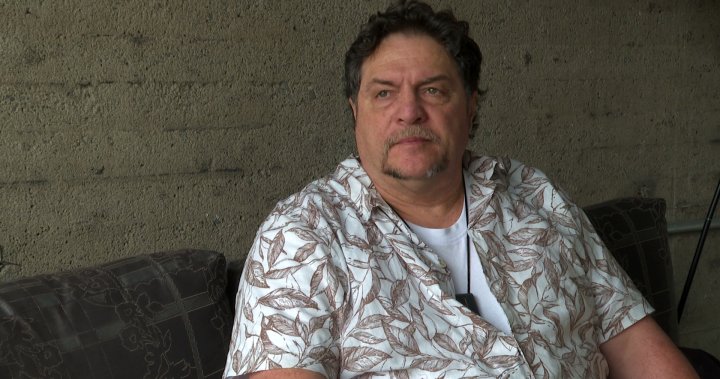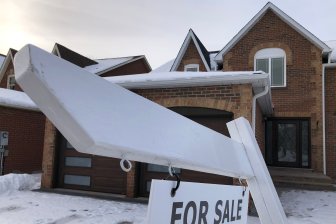
A patient in Halifax whose family doctor is closing her practice is concerned about what this means for him and the thousands of other patients.
All four doctors at the Southend Family Practice, located in the Halifax Professional Centre on Spring Garden Road, are closing their practices as of Aug. 30, which will leave more than 4,000 patients without a primary care provider.
In a letter to patients last week, Dr. Maria Sampson said “lack of support” was a contributing factor.
“Despite working with the Nova Scotia physician recruitment team for over a year, they have not secured a replacement physician to take over any of our patients,” she said.
“I regret and understand the stress this will cause you. The current state of health care in Nova Scotia and the lack of support for primary care providers has accelerated this closure.”
The other physicians are Drs. Sarah Brydie, Johanna Graham and Lianne Yoshida.
All four physicians at the Southend Family Practice, located in the Halifax Professional Centre on Spring Garden Road, are closing their practices as of Aug. 30, 2023.
Reynold Gregor/Global News
Darrell Spurr, who had been a patient at the Southend Family Clinic for 20 years, said he heard about the closure first-hand from his provider, Dr. Yoshida.
“It was obvious that she was not happy about having to do this,” he said.
“It’s difficult … because you know sooner or later your doctor may give you news that they’re retiring, or they’re moving to a different practice.
“It’s happened to me before in the past, but I’ve never had a problem with getting a doctor before.”
Spurr said he had a good experience with his doctor, who, despite being busy, ensured he was well-taken-care-of. One time, he said he had surgery and she showed up at the hospital to make sure he was OK.
“There’s not many doctors that do that in this day and age,” he said. “She always had time for me, but it was obvious she was under a lot of pressure.”
Darrell Spurr is one of more than 4,000 patients losing their family doctor at the Southend Family Practice.
Vanessa Wright/Global News
Now, he and the thousands of other patients from that clinic are staring down the barrel of the province’s Need a Family Practice Registry, the waitlist for a primary care provider that continues to grow with each passing month.
The waitlist hit an all-time high of 137,587 people this month, making up almost 14 per cent of the province’s total population.
The figures are up by nearly 4,000 people since last month, which Spurr called “disheartening.”
The province’s health department couldn’t be reached for comment Saturday, but Health Minister Michelle Thompson told reporters last week that the doctors at the clinic had requested “additional resources” — another doctor to share their workload.
Thompson said they were “not able to reach an agreement” and it was determined that the additional resources “would not, in fact, result in an increased level of access.”
“I appreciate that it’s unfortunate, it’s very difficult for those patients,” she said, “but again, we will continue to work with Nova Scotia primary care providers to not only look at how we support them in their current practice, but how we improve attachment and access.”
Thompson said the doctors will stay in the province and work in other areas of the health-care system.
Spurr, however, questions the logic behind denying the clinic an extra doctor, resulting in the loss of four family physicians.
“What is one doctor compared to losing four doctors?” he said.
Zach Churchill, leader of the opposition Liberals, told Global News that the province has never before seen such a large increase in the number of people looking for a family doctor.
“This government was elected to fix health care, and we’ve only seen the major parts of our health-care system get worse,” he said, noting the growing family doctor wait list, as well as emergency room and surgery wait times.
“What the current government is doing is not working … this is not an acceptable situation.”

Churchill said it was a mistake for the province to do away with an incentive to attract doctors to the Halifax region – one of the fastest-growing regions in the country – and also decried what he called “political involvement in the management of our health-care system.”
“This government got rid of a board of experts, they fired medical professionals who were managing the health-care system and put in place their political friends and allies,” he said.
“We have heard that people are worried that the decisions are being made through a political lens and not a health-care lens.”
Susan LeBlanc, NDP spokesperson for Health and Wellness, said she worries about the people on the waitlist for the doctor getting “lost in the system.”
She said those who don’t have access to primary care need to rely on virtual care, or walk-in clinics that can be “very hard to get into.”
“It’s really tricky, and ultimately what it means is people won’t get care when they need it, and end up getting sicker,” she said.
“And so that means people will be going to emergency departments, and on and on. It’s just a domino effect into the rest of the health-care system.”
Both Churchill and LeBlanc said they would like to see the province work with doctors and other health-care professionals to ensure they have the resources they need to continue working in the province.
LeBlanc also said she would like to see “substantial investment” in collaborative family health teams and physician assistants in this year’s provincial budget.
Meanwhile, Spurr said improvements to the struggling health-care system are urgently needed.
“Show us what you’re planning on doing about health care, not tell us about what you’re going to do four years from now,” he said.
— with files from Vanessa Wright
















